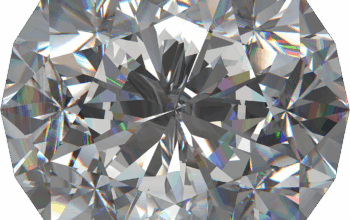Quantum optics, as a field of study, delves into the intricate behaviors of light at the quantum level, unraveling the mysteries of photons, their interactions with matter, and the principles governing quantum mechanics. This exploration is not merely academic; rather, it embodies a conduit for revolutionary advances across a myriad of scientific disciplines and technological innovations. The utility of studying quantum optics lies in its capacity to challenge conventional paradigms, inspire curiosity, and herald a transformative epoch in how we comprehend the cosmos.
The profound implications of quantum optics extend into various realms, chiefly by facilitating a deeper understanding of light’s dual nature. Light has long been viewed through the lens of classical physics, depicted as a wave propagating through space. However, quantum optics posits that photons exhibit both wave-like and particle-like properties. This duality engenders a broader appreciation for the weave of reality itself. This nuanced perception penetrates beyond mere academic curiosity; it invites interdisciplinary discourse, proffering insights that resonate across physics, philosophy, and even art. The synthesis of light and quantum mechanics illuminates philosophical inquiries surrounding determinism, reality, and observation.
In addition to its philosophical ramifications, quantum optics acts as a catalyst for pioneering technologies. One of the most significant pursuits in this regard is quantum computing. The principles of superposition and entanglement, hallmarks of quantum mechanics, enable the development of computational systems that vastly outperform classical counterparts. Quantum optics is integral in the manipulation of qubits, the fundamental units of quantum information. This shift promises computational capabilities previously deemed unattainable, ultimately revolutionizing fields ranging from cryptography to materials science.
The promise of quantum-enhanced technologies extends beyond computing. Quantum cryptography, epitomized by protocols such as Quantum Key Distribution (QKD), emerges as a formidable solution to the ever-looming threat of cybersecurity breaches. By employing the principles of quantum mechanics, particularly the no-cloning theorem, QKD guarantees that any attempt to intercept quantum information will be detectable. This paradigm shift offers an unprecedented level of security, which is indispensable in a digital age fraught with vulnerabilities.
Moreover, quantum optics serves as a linchpin for advancements in sensor technology. Quantum sensors capitalize on the sensitivity afforded by quantum fluctuations, leading to devices that are capable of measuring physical quantities with astonishing precision. Applications abound—from timekeeping, as evidenced by atomic clocks, to gravitational wave detection. Quantum-enhanced sensors open avenues for exploration in fields such as geophysics, metrology, and even biomedical imaging, broadening the horizons of empirical research.
A pivotal facet of quantum optics is its role in elucidating non-classical light states. The investigation of squeezed light, for instance, challenges the classical limits of measurement and instigates novel approaches in imaging and communication systems. By producing photons with reduced quantum uncertainty in one parameter, researchers can enhance the sensitivity of measurements in interferometry and improve signal-to-noise ratios. Such advancements not only deepen our understanding of quantum mechanics but also have practical implications in enhancing technological performance.
Furthermore, the study of quantum optics piques curiosity through its engagement with phenomena that defy intuitive understanding. Quantum entanglement, often referred to as “spooky action at a distance,” elicits awe as it contravenes classical notions of locality. The interdependence of entangled particles captivates the imagination, igniting inquiries into the fabric of reality and the interconnectedness of disparate systems. As researchers probe these esoteric realms, they inspire a generation of curious minds to grapple with fundamental questions regarding the nature of existence and the universe.
The intersection of quantum optics and information theory engenders another fertile ground for exploration. Quantum information science postulates that information is not merely a classical construct; it possesses inherent quantum attributes that merit rigorous investigation. Concepts such as quantum teleportation, quantum superdense coding, and quantum algorithms expand our comprehension of information beyond its classical confines. This paradigm shift beckons scholars from computer science, mathematics, and physics to collaborate, further enriching the discourse surrounding this burgeoning field.
Additionally, the implications of quantum optics transcend strictly scientific boundaries, inviting contemplative discourse that implicates ethical considerations and societal impacts. As the capabilities of quantum technologies burgeon, questions arise regarding accessibility, governance, and the potential for misuse. Engaging with these ethical dilemmas becomes imperative as society navigates the uncharted waters of quantum advancements. The fusion of science with ethics fosters a comprehensive approach to innovation, shaping a future in which the benefits of quantum optics are equitably distributed.
Lastly, the study of quantum optics can catalyze a reimagining of foundational principles in theoretical physics. The exploration of quantum phenomena challenges physicists to reassess the underpinnings of space, time, and causality. Conceptual frameworks such as quantum field theory and quantum gravity arise from this deep inquiry, potentially leading to a unified theory that reconciles quantum mechanics with general relativity. These endeavors compel scholars to think divergently, fostering a culture of innovation that thrives on curiosity, creativity, and interdisciplinary collaboration.
In summation, the utility of studying quantum optics transcends the mere pursuit of knowledge; it embodies a transformative journey that bridges the empirical with the theoretical, the practical with the philosophical. By embarking on this odyssey through the quantum realm, we cultivate an enriched understanding of the universe, spark curiosity that fuels future exploration, and ultimately, champion a paradigm shift that reverberates across scientific disciplines and society at large. The promises of quantum optics beckon us to delve deeper, to question the status quo, and to unleash the full potential of human ingenuity.












